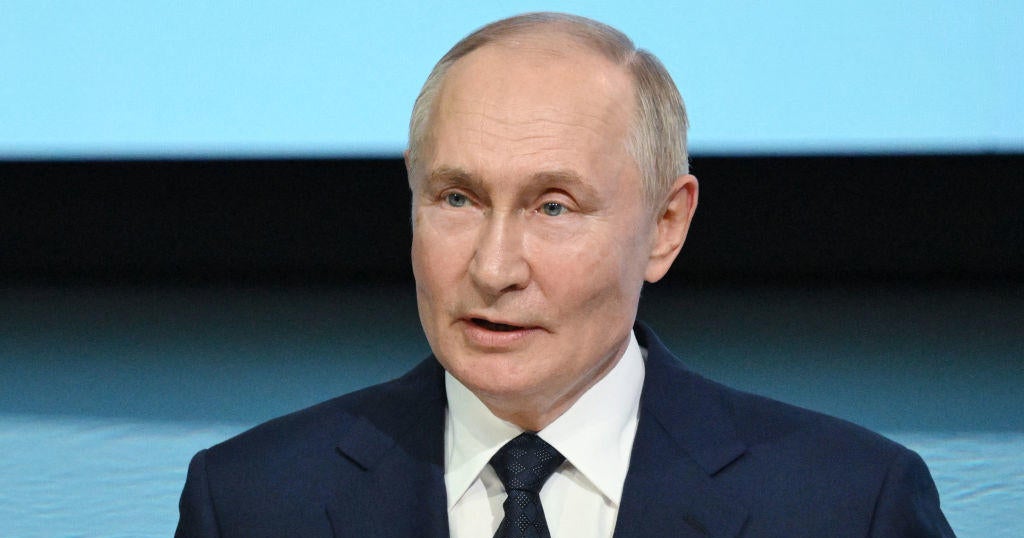U.K. lawmakers' Brexit standoff appears to irk Queen Elizabeth
London -- Queen Elizabeth II has urged people to seek "common ground," in remarks widely interpreted as a veiled criticism of the toxic debate surrounding Britain's departure from the European Union. While the monarch didn't mention Brexit and is barred from commenting on political issues, the Times of London described the comments as a "rebuke to warring politicians."
Lawmakers on all sides of the increasingly tense Brexit debate have traded barbs in recent weeks as Prime Minister Theresa May tries to push ahead with the divorce deal she negotiated with EU leaders. That deal was overwhelmingly rejected by Parliament in a Jan. 15 vote, and May has won little concession from her European negotiating partners to sweeten it since, but she will bring it back to Parliament for another attempt at winning approval on Tuesday.
"Every generation faces fresh challenges and opportunities," the monarch said Thursday in a speech marking the 100th anniversary of the Women's Institute in Sandringham, home to one of the royal family's country estates. "As we look for new answers in the modern age, I for one prefer the tried and tested recipes, like speaking well of each other and respecting different points of view; coming together to seek out the common ground; and never losing sight of the bigger picture."
Even though she must remain publicly neutral on political issues, the queen's words are carefully watched as a moral bellwether.
While her remarks to the Women's Institute were similar to those in the queen's annual Christmas address, they come as May faces increasing pressure to rule out the possibility of leaving the EU without an agreement on future relations.
Work and Pensions Secretary Amber Rudd, a prominent supporter of the prime minister, said Thursday she was "committed to making sure we avoid no-deal," which would have devastating effects on the British economy. A string of union bosses have been holding talks with May and are also urging her to take no-deal off the table.
"Backstop": The main sticking point
European Union negotiators have refused to budge on the biggest sticking point between the two sides; the so-called "backstop" on the Irish border.
The backstop is a measure included in the draft agreement May's team has spent two years hashing out with the EU aimed at preventing, under any circumstances, a return to border checks (a "hard border") between Northern Ireland, which is part of Britain, and Ireland, an independent nation and EU member. It is the only land border between the British Isles and Europe.
There is fear on both sides of that border that if Britain leaves the European Union as scheduled on March 29 without a customs agreement in place, security checkpoints would have to be reinstated on the border. The border has been unguarded and virtually invisible for more than a generation, since the end of "the Troubles," the 30-year conflict between Irish republicans and pro-British unionists that claimed more than 3,700 lives.
If border checks are reinstated, there's concern it could reignite the sectarian tension which still simmers beneath the surface.
The problem with the "backstop" agreement, from the perspective of those who voted for and still wish to see Britain break with the European Union, is that it's a contingency plan which would leave not just Northern Ireland, but all of the U.K. beholden to EU trade and customs laws if no deal is struck by March 29 and Britain "crashes out" -- at least until an agreement is reached.
That, ardent "Brexiteers" say, would be a Brexit in name only.
There is consensus in Britain's Parliament that a no-deal Brexit would be bad for the United Kingdom. All but the most hardcore pro-Brexit lawmakers agree that a sudden withdrawal from 45 years of intricate trade and travel synchrony, without anything to replace it but broad World Trade Organization rules, would have a damaging effect on the British economy, at least in the short term.
Many fear chaos at the two major British ports where truckloads of vital medicines, in addition to food and virtually every other commodity, pour into the U.K. from the European mainland every day, as they have done since 1973 without any significant border controls.
However, at least as of January 15, a significant majority of Britain's lawmakers still weren't comfortable with the prospect of an indefinite "backstop," which as currently written, would essentially keep the U.K. tied to EU law without any of the benefits of Union membership after March 29. So they rejected the deal.
That, to this day, leaves a no-deal Brexit as the default fall-back option -- and with no sign of agreement in London, an increasingly likely outcome.




